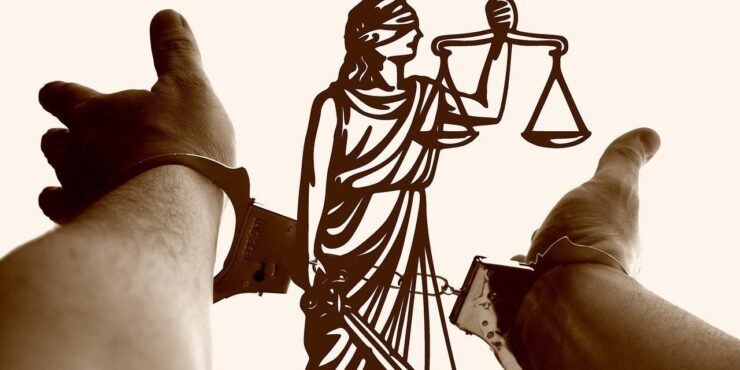In an increasingly globalized world, the ability to bring fugitives to justice across borders is vital. Extradition treaties serve as a cornerstone for international law enforcement, allowing countries to cooperate in the transfer of individuals accused or convicted of crimes.
However, these treaties are not just about legal formalities; they reflect complex negotiations balancing national sovereignty, human rights, and the pursuit of justice. This article explores what an extradition treaty is, how it functions, and why it is a crucial tool in the international legal system.
What is an Extradition Treaty?
An extradition treaty is a formal agreement between two or more countries that defines the legal framework for surrendering individuals accused or convicted of crimes. These treaties establish:
- Eligible offenses ─ The types of crimes for which extradition can be requested, typically focusing on serious offenses like murder, terrorism, drug trafficking, and financial crimes.
- Dual criminality requirement ─ The principle that the alleged crime must be recognized as an offense in both the requesting and requested countries.
- Extradition procedures ─ The steps involved in making and responding to extradition requests, including documentation and judicial review.
- Grounds for refusal ─ Specific circumstances under which a country can legally refuse to extradite, such as risks of torture, political motivations, or potential death penalty sentences.
Understanding these elements is essential for grasping how extradition treaties function in practice.
Key Principles Governing Extradition Treaties

Extradition treaties operate based on several core principles designed to balance justice and sovereignty. The most significant among these are:
1. Dual Criminality
Dual criminality requires that the act in question must be considered a crime in both the requesting and requested countries. This principle prevents extradition for actions that might be legal in the requested state. For example, a country that does not criminalize certain political activities may refuse to extradite someone charged with those acts elsewhere.
2. Specialty Principle
The specialty principle mandates that the extradited individual can only be prosecuted for the offenses specified in the extradition request. This prevents any misuse of the extradition process to target individuals for unrelated charges after they have been surrendered.
3. Non-Extradition of Nationals
Many countries refuse to extradite their own citizens based on constitutional or legal provisions. In such cases, the requested state may opt to prosecute the individual domestically if sufficient evidence is provided.
4. Protection Against Human Rights Violations
Modern extradition treaties often incorporate clauses that prevent extradition if the individual risks facing torture, inhumane treatment, or unfair trials in the requesting country. This reflects a growing emphasis on aligning extradition practices with international human rights standards.
How Extradition Treaties Work in Practice

Extradition treaties establish legal frameworks that allow one country to request the surrender of an individual from another for trial or punishment. Although the specifics vary by agreement, most treaties follow a standard multi-step process. Below is a breakdown of how the procedure typically unfolds once a request is initiated.
1. Issuance of an Extradition Request
The process begins when the requesting country formally submits an extradition request to the country where the suspect is located.
- This request must include full documentation outlining the criminal charges and the legal basis for requesting extradition.
- It must also contain supporting evidence that links the individual to the alleged crime.
- The requesting state must comply with the treaty’s procedural requirements, such as dual criminality—the principle that the act must be considered a crime in both countries—and the specialty rule, which prevents prosecution for offenses not listed in the request.
At this stage, precision and thoroughness are critical. If the request fails to meet any treaty condition, it may be rejected before reaching court review.
2. Judicial Review in the Requested State
Once the request is received, courts in the country where the individual is located begin the legal evaluation.
- The judiciary checks whether the extradition request aligns with both the local laws and the terms defined in the treaty.
- The court reviews the evidence to ensure it is sufficient and credible and verifies that the charges meet the required threshold under the treaty.
- Judges also look for grounds for refusal, such as potential political motivation, risk of inhumane treatment, or violations of the individual’s rights.
This legal check ensures that the requested country does not surrender individuals without due process and proper legal scrutiny.
3. Decision and Surrender

After judicial assessment, a formal decision is made.
- If the court finds the request valid, the person is cleared for surrender. Authorities will arrange for the transfer to the requesting state, where the trial or punishment will take place.
- If the court rejects the request, the process may not end immediately. The requesting country can choose to appeal the ruling if allowed by law or seek a different legal route, such as diplomatic negotiation or additional evidence.
This step marks the transition from legal review to enforcement, though outcomes can vary depending on national procedures and bilateral relations.
4. Post-Extradition Safeguards
Even after the individual is handed over, the treaty may still impose conditions that must be respected by the requesting country.
- Many treaties prohibit adding new charges after extradition unless they are separately approved by the requested state.
- Additional safeguards often guarantee that the extradited person receives a fair trial and is treated according to international human rights standards.
Such protections aim to prevent abuse of the process and ensure that extradition serves justice without overstepping legal or ethical boundaries.
Each stage in the extradition process reinforces the need for precision, legal integrity, and mutual respect between states. Without clearly defined treaty terms and cooperation between national authorities, the extradition system cannot function effectively.
Grounds for Refusing Extradition
Extradition can be denied for several legal and human rights reasons, usually stated in the treaty:
- Political offenses ─ Crimes like treason or espionage are often excluded to avoid misuse against political opponents.
- Death penalty or torture risk ─ Countries, especially in Europe, refuse extradition if there’s a serious risk of execution or inhumane treatment.
- Lack of dual criminality ─ If the alleged act isn’t a crime in the requested country, extradition doesn’t apply.
- Expired statute of limitations ─ Requests can be rejected if the time limit for prosecution has already passed.
These protections ensure fairness while supporting international legal cooperation.
Challenges and Controversies in Extradition Treaties

Extradition treaties serve a vital role in cross-border justice, but the system faces persistent legal, political, and ethical challenges. These issues often delay or derail legitimate extradition efforts, raising concerns about fairness, sovereignty, and human rights.
1. Lack of Uniformity Across Legal Systems
There is no global standard for extradition. Every country approaches it through its own set of bilateral or multilateral treaties.
- As a result, the rules and procedures vary widely.
- One country might require strict judicial review, while another may allow broad executive discretion.
- This inconsistency creates legal gaps where some fugitives exploit treaty mismatches to avoid accountability.
Even well-established alliances, like those in the EU, still face complex legal negotiations when dealing with non-member states or countries with limited treaty obligations.
2. Political and Diplomatic Tensions
Extradition often becomes a political issue, especially in high-profile or sensitive cases.
- When a person sought for extradition is connected to government criticism, activism, or intelligence work, the request may be seen as politically driven.
- In such cases, the requested country may delay or deny surrender, citing concerns over the motivation behind the charges.
- This can trigger diplomatic fallout and long-term damage to bilateral relations.
Governments must navigate the fine line between legal obligations and foreign policy interests, which complicates cooperation.
3. Human Rights Complications
Human rights concerns can block extradition, even when treaties exist.
- Courts often refuse extradition if there’s a credible risk of torture, inhumane treatment, or an unfair trial in the requesting state.
- Countries with known issues in prison conditions, judicial independence, or legal protections may find their requests challenged or denied.
- European countries, in particular, are bound by the European Convention on Human Rights, which sets a high bar for ensuring fair treatment.
This barrier plays a critical role in protecting individuals but can also be misused as a shield against legitimate prosecution.
4. The Problem of Non-Cooperative States

Extradition only works when both countries involved are willing to comply.
- Some nations are not part of any extradition treaty or deliberately avoid enforcement, turning into safe havens for fugitives.
- Others may protect individuals for political, economic, or ideological reasons.
- Lack of cooperation from these states disrupts global justice efforts and weakens the credibility of international law enforcement.
Each of these problems reflects a deeper conflict between national sovereignty, international law, and the need to protect fundamental rights.
Countries must continue to strengthen treaty language, enforce consistent legal standards, and close loopholes that allow evasion. At the same time, safeguards must remain in place to prevent abuse, especially in politically charged cases.
Only then can extradition treaties serve both justice and fairness on a global scale.
The Importance of Well-Drafted Extradition Treaties
Well-drafted extradition treaties are vital for several reasons. They provide a clear legal basis for transferring individuals accused of serious crimes across borders. Ensuring that fugitives cannot escape prosecution by crossing borders enhances the rule of law.
Modern treaties increasingly include safeguards against abuses, ensuring that the pursuit of justice does not come at the cost of fundamental rights.
For these reasons, countries continue to negotiate and update extradition treaties to reflect evolving legal standards and geopolitical realities.
Conclusion
Extradition treaties are a critical tool in the fight against transnational crime, balancing the need for effective international cooperation with the protection of individual rights. Understanding how these treaties work and the principles that govern them is essential for anyone involved in international law or criminal justice.
By ensuring that extradition processes are fair, transparent, and respectful of human rights, these treaties play a crucial role in upholding justice on a global scale.

